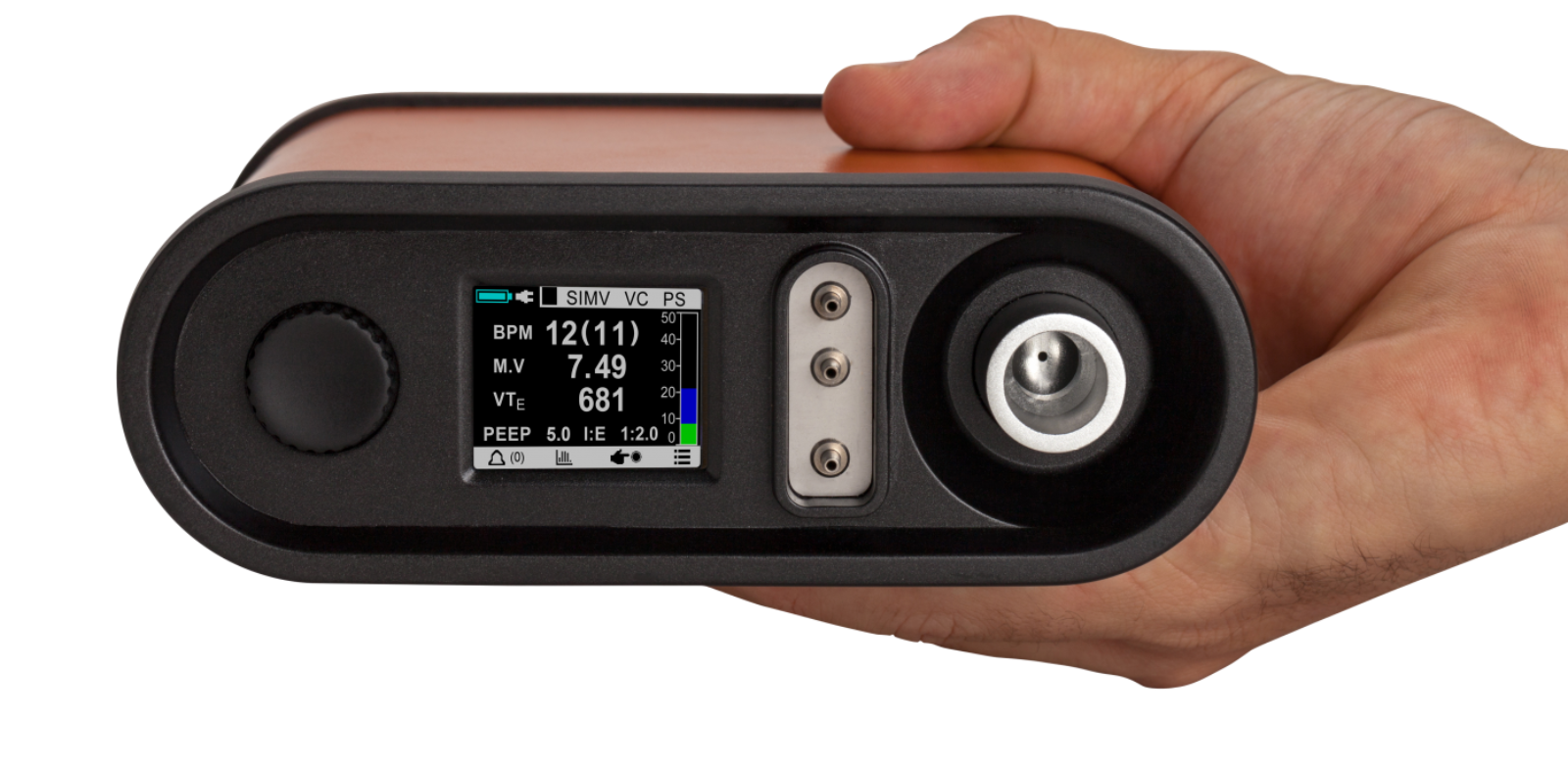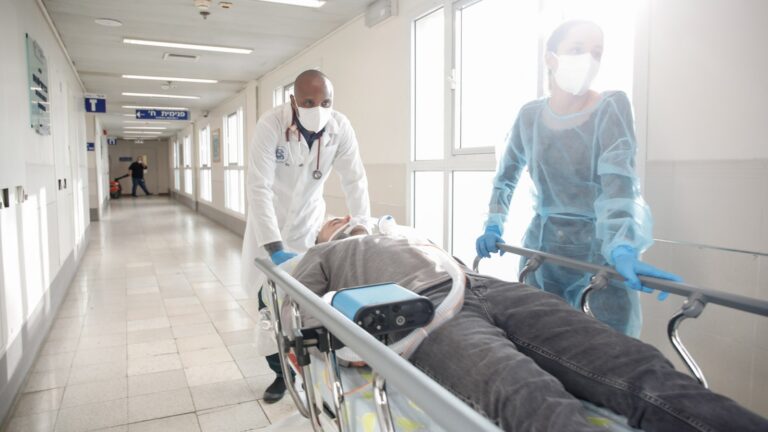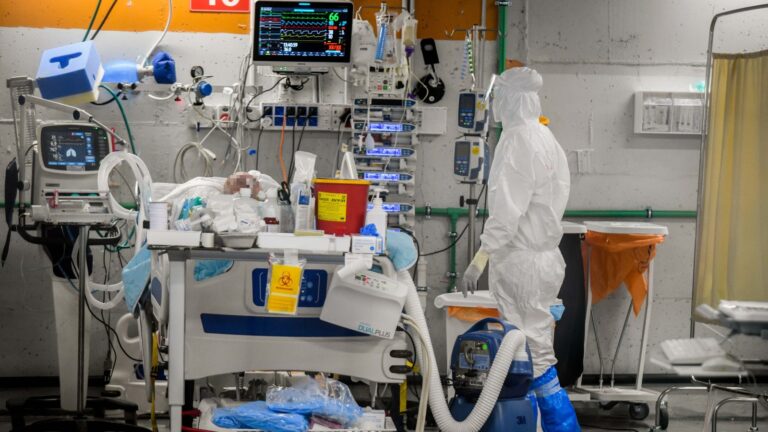As soon as Israeli hospitals saw a possible shortage of ventilators for critical Covid-19 patients, the Startup Nation’s public, private and nonprofit sectors got busy finding fast and affordable alternatives.
One of the coordinators of this task is Daniel Gold, the retired brigadier general who daringly began the Iron Dome missile defense project in defiance of the establishment in 2005.
This time, as head of the Defense Ministry’s Directorate for Defense R&D (DDRD), Gold does not have to go behind anyone’s back. The DDRD enjoys full support in tackling this issue along with the ministry’s Directorate of Procurement and Production (DOPP).
“Our defense industries have unparalleled capabilities — able to manufacture components quickly and in great quantities, whether it’s for weapon systems or ventilators. This eliminates our dependence on imports,” said Gold.
“We are continuing in the race around the clock to translate the extraordinary tech capabilities of the defense establishment, to the fight against corona.”
Everyone agrees the need is urgent.
“Due to the shortage of ventilation machines, when medical staff face the impossible situation of deciding who to ventilate and who will be left to die, quick solutions for ventilation machines are direly necessary,” said Dr. Yoav Mintz, director of Hadassah Medical Center’s Center for Innovative Surgery.
Portable ventilators in production

The DDRD and DOPP converted an Israel Aerospace Industries (IAI) production facility to mass-produce portable turbine ventilators designed by Israeli medical device maker Inovytec.
Inovytec’s Ventway Sparrow ventilators can be used in and out of the hospital. “The Ventway is suitable for chronic, life support-ventilation in COVID-19 patients,” the company says.
IAI’s missile and space engineers are producing the lightweight, turbine-powered ventilators in cooperation with Inovytec.
The Defense Ministry also is expanding ventilator production capacity through a collaboration between Israeli ventilator maker Flight Medical Innovations, electronic manufacturing company Baya Technologies and Rafael Advanced Defense Systems.
Flight Medical’s Flight 60 compact mobile mechanical ventilator is suitable for all clinical situations. The company is now developing its Vento2ux series for use in ICUs.
LifeCan One
One made-in-Israel ventilator project is a partnership between an internationally known entity — defense electronics company Elbit Systems — and a new startup called LifeCan Medical.
LifeCan’s emergency automatic ventilators are designed for non-hospital settings to support breathing in less severely ill patients.
Projected to cost $2,000 a piece as opposed to tens of thousands for the type of ventilators used in intensive care units, LifeCan One ventilators were approved by the Health Ministry at the prototype stage and will be manufactured by Elbit starting next week at a rate of 500 per week.
The initial goal is to produce 3,000 units to meet projected needs and help keep less critical patients from needing hospital care.
AmboVent
Another made-in-Israel project is the result of a two-week collaborative effort spearheaded by Air Force Maj. David Alkaher.
Among about 40 participating entities are the Israel Air Force electronics unit, IAI, Microsoft Israel, Rafael Advanced Defense Systems, robotics specialists, medical centers, national emergency network Magen David Adom and student robotics organization FIRST Israel.
The first AmboVent emergency ventilator prototype was built within 48 hours by a high school robotics team. Mechanized to control respiration rate, volume and maximum peak pressure automatically, AmboVent is based on the Ambu Bag manual resuscitator that first responders use to restore normal breathing.
An open-source plan released on GitHub on April 2 shows how the new device can be assembled quickly and cheaply using a 3D printer and off-the-shelf components such as sensors, car parts and a snowblower motor.
Project coordinator Eitan Eliram, cofounder of Scout Innovation, reported that the specifications — translated from Hebrew into English, German, Italian, and Spanish by the Media Innovation Lab at IDC Herzliya — have been accessed by thousands of individuals and groups from countries including Iran, Egypt, South Africa, Guatemala, Italy and the United States.
“We kept the design and every aspect of it very simple so it would be as easy as possible to replicate from everywhere,” he said.
The device is being tested at medical centers. Eliram estimated that making each AmboVent will cost between $500 and $1,000.
Sharing with the world
“We’re making a lot of progress in ventilation, an area where we need new solutions because there is an extreme shortage all over the world,” said Dr. Eyal Zimlichman, chief medical officer and chief innovation officer at Sheba Medical Center and head of its ARC Innovation Center.
Sheba is treating most of Israel’s Covid-19 patients. They use a wide assortment of new technologies, particularly in the field of contact-free care. Zimlichman said ARC has been working with partners including the IDF, DDRD and IAI.
This week, Sheba received 100 hospital-grade ventilators that were made by converting BiPAP (Bilevel Positive Airway Pressure) noninvasive ventilation machines, a project done in collaboration with the IDF.
“IAI will do mass production [of the converted BiPAP ventilators] in the future if there is a need,” Zimlichman tells ISRAEL21c. “We believe the world will be very interested in this idea. We will share it with partners across the world.”
Zimlichman cautions, however, that Covid-19 seems to manifest itself in different ways, and ventilation is not warranted for all critical patients; in fact, in some patients ventilation may be more harmful than helpful. Nevertheless, hospitals want to be sure enough ventilators and associated technologies are available for patients who may benefit from them.
IAI’s Aviation R&D group is developing a sterilization system for hospital ventilators as well as a ventilation “helmet” made from 3D-printed parts. The Israeli Navy’s R&D team is working with partners on producing advanced medical oxygen compression systems to aid in treating ventilated Covid-19 patients.
Avi Dadon, Deputy Director General and head of DOPP, added: “We are proud of the full mobilization of Israeli industries for the national mission of manufacturing and supplying ventilators. The cooperation between defense, high-tech and medical industries is a real force multiplier.”
Meanwhile, World Judo Champion Sagi Muki is auctioning personal memorabilia to purchase five ventilators for a hospital in his hometown of Netanya.
















